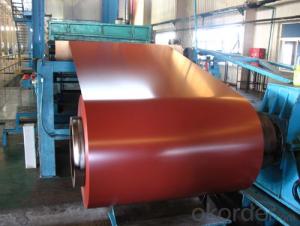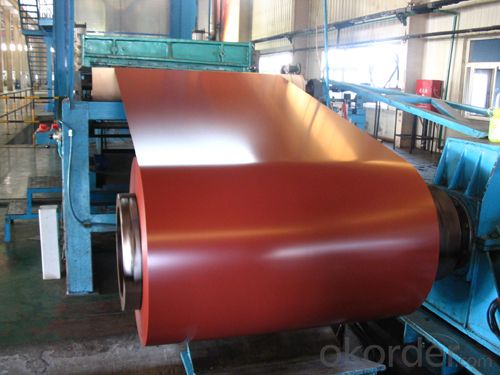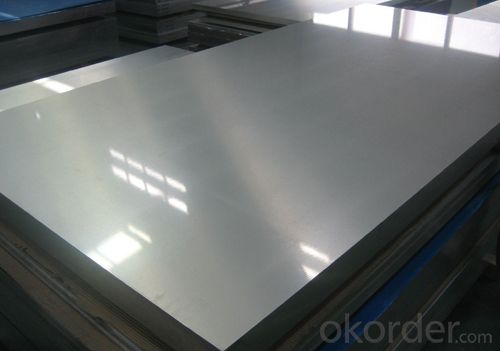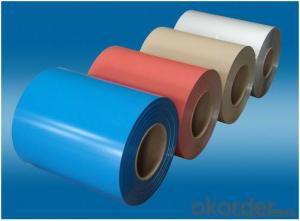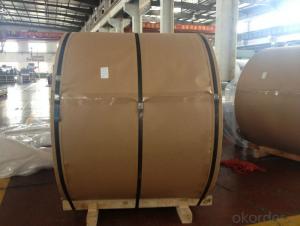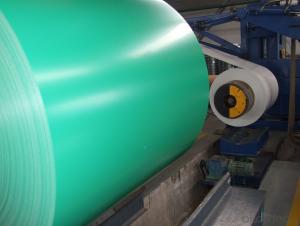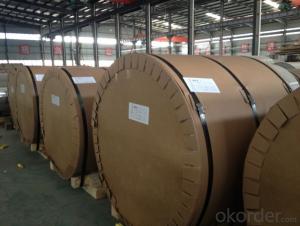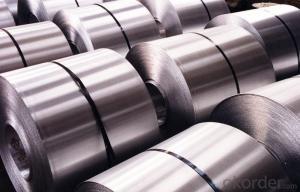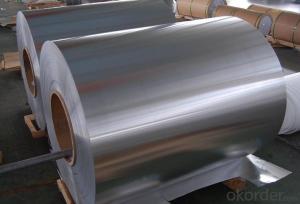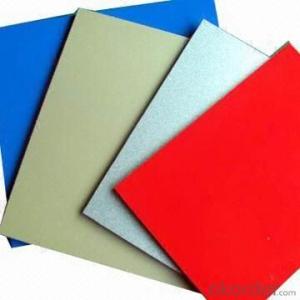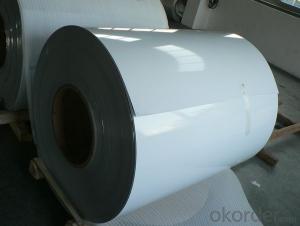Aluminum Coil White for Sandwich Panel ACP Production
- Loading Port:
- Shanghai
- Payment Terms:
- TT OR LC
- Min Order Qty:
- 20 m.t
- Supply Capability:
- 10000 m.t/month
OKorder Service Pledge
OKorder Financial Service
You Might Also Like
Specification
1. Specification of Aluminum
1) Alloy | 1050, 1060,1100, 3003 3004 3105 3005 5005 5052 etc |
2) Temper | O/H12/H14/H1/H18/H32/H34/H36/H38//H111/H112/H116/H321/T6/T651/T3/T351 etc |
3) Thickness | 0.1mm to 6mm |
4) Width | 20mm to 3300mm |
5) Coil weight | 100kgs to 6 tons depends on actual requirement |
6) Core material | Aluminum alloy |
7) Coil Inner diameter | 76mm, 152mm,or as required |
2. Application of Aluminum
Aluminum is a versatile material integral to modern life. The metal is found in everything from soda cans to cell phones to window frames to airplanes.
3. Feature of Aluminum
The Aluminum Company is proud to install Owens Corning and CertainTeed roofs in homes throughout North Carolina, from Greensboro to Raleigh Durham and across the state
4. Certificate:
SGS and ROHS(if client request, paid by client), MTC(plant provided), Certificate of Origin(FORM A, FORM E, CO)
5. Image of Aluminum
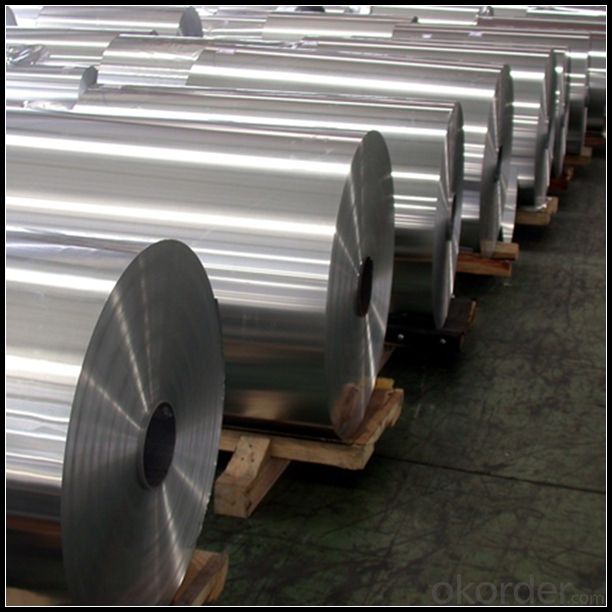
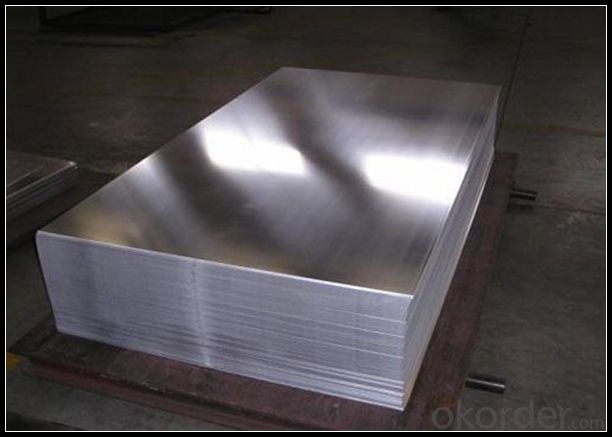
6. FAQ
Q: What is the produce prase? | ||||
A: Normally it would be 40days after received your deposit. | ||||
Q: Can you provide free samples? | ||||
A: Yes, free samples will be sent to you on freight at destination. | ||||
Q: Can I get your latest catalogue? | ||||
A: Yes, it will be sent to you in no time. | ||||
Q: What is the MOQ? | ||||
A: 3 tons | ||||
Q: What are your payment terms? | ||||
A: We accept L/C, D/A, D/P, T/T, West Union,etc. |
- Q: What is a common reaction of this element?What is another element closely related to Aluminum?Thank youuuuu.
- Aluminum is from team 3 and there for has 3 electrons in its outer shell and desires 5 to fill it. it fairly is going to react with any aspects from team 5 that want aluminum's 3 electrons.
- Q: What do the two items (COIL:873347 HEAT: number) on the label of the raw material of aluminum coil stand for?
- COIL means aluminum coil and HEAT means heating, so together they mean hot rolled coil.
- Q: How are aluminum coils protected against bending and warping during storage?
- Various measures and precautions are taken to protect aluminum coils from bending and warping during storage. Firstly, the coils are typically stored horizontally to evenly distribute the weight and reduce stress on the coil, thus preventing any bending or warping that could occur if stored vertically. Additionally, protective materials such as plastic or paper are often used to wrap the coils, creating a barrier against external forces that could cause damage. These wrappings act as a cushion, preventing direct contact with hard surfaces that could result in bending or warping. Furthermore, it is standard practice to carefully and securely stack the coils, ensuring they are not overloaded or subjected to excessive pressure. This helps maintain the coils' structural integrity and prevents deformation during storage. Temperature control is also crucial in protecting aluminum coils. Extreme temperature fluctuations can cause the metal to expand or contract, potentially leading to warping. Therefore, it is important to maintain a stable storage environment to minimize any thermal stress on the coils. In conclusion, proper handling, protective wrappings, secure stacking, and temperature control all play vital roles in preventing bending and warping of aluminum coils during storage. These measures ensure the coils remain in optimal condition and are readily available for use when needed.
- Q: Other than alloys. I'm trying to think of a way I can make an aluminum knife that will hold an edge. One group of researches say they used 60 metric tons of force to realign the molecular structure and give the metal strength equal to steel. I don't have a 60 ton press aha. Would heat treatment plus 10 tons of pressure repeated have a similar affect?
- Aluminum bronze is used commercially to make non-sparking knives. Why try to reinvent the wheel? I'm trying to think of a way I can make an aluminum knife that will hold an edge. You can strengthen aluminum by either cold working or heat treating a suitable alloy, but it will never be anything close to a good steel knife. Would heat treatment plus 10 tons of pressure repeated have a similar affect? No. Assuming that you are talking about the article linked to below: - you would have to duplicate the alloy process, even then you could only make a small thin sheet. They used a heat treatable alloy. The process involves torsional strain under 60 metric tons per square centimeter compression. How big a press do you think you would need for a knife size blank? And remember, you have to apply torsional cold work while compressing it. -Their results ( 1 gPA YS 5% elongation in a very thin sheet) don't look that great compared to a good knife steel. Or a good titanium knife.
- Q: What is color aluminum coil?
- The base plates are all aluminum, but the surface has been colored.
- Q: Is it possible to utilize aluminum coils for the storage of food items?
- <p>Yes, aluminum coils can be used to store foodstuffs, particularly in the form of aluminum foil. Aluminum foil is a common food storage material due to its properties such as being lightweight, flexible, and providing a barrier against air and moisture. It is often used for wrapping food for cooking, freezing, or preserving. However, it's important to ensure that the aluminum does not react with the food, especially acidic foods, as this could lead to contamination. Additionally, it's not recommended for long-term storage as it does not provide a complete seal or barrier against all contaminants.</p>
- Q: Are aluminum coils suitable for food processing and packaging?
- Yes, aluminum coils are suitable for food processing and packaging. Aluminum is a safe and hygienic material that is resistant to corrosion, odors, and moisture. It is commonly used for packaging food products due to its ability to maintain the freshness and quality of the food, preventing contamination and providing a longer shelf life. Additionally, aluminum coils are lightweight, flexible, and can be easily formed into various shapes and sizes, making them ideal for food packaging applications.
- Q: Are aluminum coils suitable for low-maintenance roofing applications?
- Yes, aluminum coils are suitable for low-maintenance roofing applications. Aluminum is highly resistant to corrosion, lightweight, and durable, making it an ideal material for roofing. It requires minimal maintenance, as it does not rust or rot like other metals. Additionally, aluminum roofs are known for their longevity and ability to withstand harsh weather conditions, further reducing the need for maintenance.
- Q: Can aluminum coils be used in packaging industries?
- Indeed, the packaging industry can utilize aluminum coils. Aluminum emerges as a favored option for packaging materials owing to its abundant advantageous properties. It possesses a lightweight nature, durability, resistance to corrosion, and exceptional thermal conductivity. Such attributes render aluminum coils appropriate for a variety of packaging applications encompassing food and beverage packaging, pharmaceutical packaging, and cosmetic packaging. Moreover, aluminum stands out as highly recyclable, thereby constituting an environmentally conscious choice for the packaging industry. All in all, aluminum coils deliver remarkable performance and versatility, rendering them a fitting choice for packaging industries.
- Q: Are aluminum coils suitable for architectural applications?
- Yes, aluminum coils are suitable for architectural applications. Aluminum is a highly versatile and durable material that is commonly used in the construction industry for various architectural applications. Aluminum coils offer several advantages for architectural use, including their lightweight nature, corrosion resistance, and ability to be easily formed into desired shapes and sizes. These coils can be used in architectural applications such as roofing, cladding, facades, and gutters, among others. Additionally, aluminum coils can be coated with different finishes, providing a wide range of aesthetic options for architects and designers. Overall, aluminum coils are an excellent choice for architectural applications due to their strength, durability, and flexibility.
Send your message to us
Aluminum Coil White for Sandwich Panel ACP Production
- Loading Port:
- Shanghai
- Payment Terms:
- TT OR LC
- Min Order Qty:
- 20 m.t
- Supply Capability:
- 10000 m.t/month
OKorder Service Pledge
OKorder Financial Service
Similar products
Hot products
Hot Searches
Related keywords
